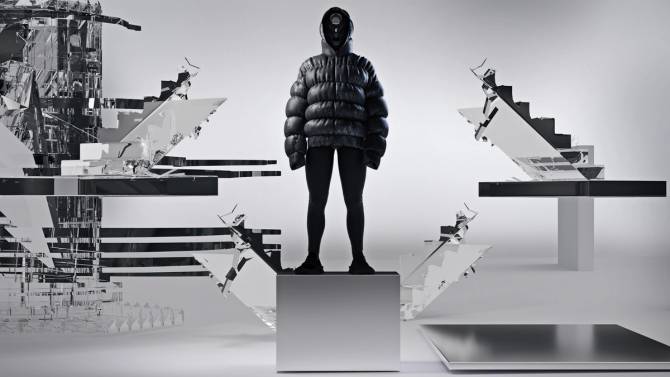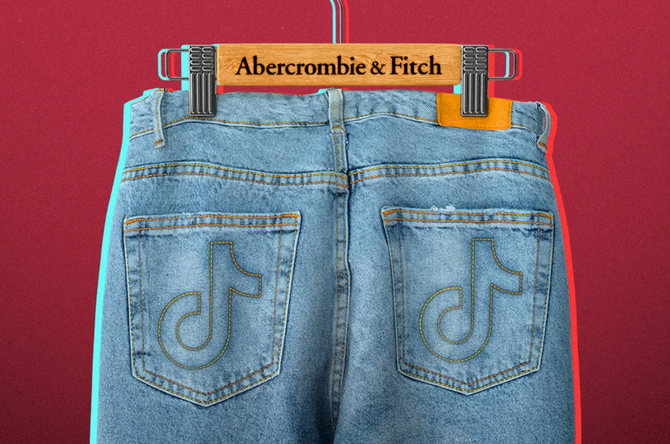Welcome to Monday, friend. If you don’t mind us saying, you look like you could use a hug. But we’ve got good news: Jim Beam is selling pajamas that have a special (removable) weighted section that drapes over the neck and shoulders and, according to the brand, “replicate[s] the feeling of an in-person hug.” That may seem far-fetched, but after a bourbon or two or five, who’s to say?
In today’s edition:
—Katishi Maake, Maeve Allsup
|
|
Frank Scialabba
From crafting the perfect policy to navigating logistics, returns are a tasking component of operating a retail business.
But what is the ultimate cost of returns? For starters, not all returned products make it back to shelves, and that means they often are relegated to a landfill, which has a major impact on the environment, experts told Retail Brew.
As we previously reported, the financial impact to retailers is great: Total returns in 2021 accounted for more than $761 billion in merchandise last year. Plus, it’s estimated $135 billion in goods will be returned in the United States between Thanksgiving and the end of January, a 12.5% increase from 2021, according to Optoro.
But the environmental cost of returns is also great. It’s a component of the returns process that some consumers might not be aware of, even among those who strive to shop in an environmentally conscious manner.
- Returned inventory creates 9.6 billion pounds of landfill waste each year, and emits more than 27 million metric tons of carbon dioxide—the equivalent of a year’s worth of driving for 5.9 million cars, per Optoro.
- The problem is more pernicious with e-commerce, given that online returns resulted in 14% more waste than in-store in 2021.
“You’re losing a ton of value in markdowns that occur and goods that don’t get back to stock, which is a lot of cheaper goods and larger items where it doesn’t make economical sense to fully process the goods,” Tobin Moore, CEO and co-founder of Optoro, told Retail Brew. “A lot of those goods end up just going straight to landfills.”
Keep reading here.—KM
|
|
|
Once data, mobile, and e-commerce sauntered into the picture, the role of the modern-day marketer changed ~forever~. But all isn’t lost! In fact, data suggests CMOs are paving the way for a new golden age of marketing.
Wunderkind’s The CMO State of the Union report highlights how marketers can embrace this shining new era to drive new, sustained growth. Wunderkind surveyed 100+ senior marketing leaders at top e-comm brands to bring you exec-level tips on how to think outside the box.
Uncover fresh insights and modern opportunities + get a real feel for the evolving landscape.
Food for thought: 94% of CMOs view the last two years as a turning point for marketers. Are you ready for the next two? Prep with Wunderkind’s free report here.
|
|
Adidas
Since the drop of Adidas’s first NFT collection in December 2021 (which sold out faster than tickets to Taylor Swift’s upcoming tour), the sportswear brand has been busy building out its “community-based, member-first, open metaverse strategy.”
Holders of the original 30,000 “Into the Metaverse” tokens were able to swap them out for exclusive physical items earlier this year, and those that did so then received additional tokens from the brand—Adidas Originals Meta Capsule NFTs.
In November, token holders gained access to yet more exclusive Adidas fashion: a 16-piece collection of blockchain-based virtual wearables for the metaverse ranging from the almost plausible to the utterly fantastical (take a look at the jackets themselves and you’ll know what we mean!)
- Existing NFT holders were allocated items at random, and can choose to “burn” the token and reveal the item, which can then be worn by a virtual avatar, or sell the NFT without knowing which item it represents.
- Those who don’t already own an Adidas NFT can still purchase the virtual wearables on digital marketplace OpenSea, where items are on sale for as much as 88 Ethereum (over $100,000).
- The collection includes three limited-edition wearables representing Adidas’ early partners in its Web3 foray: NFT collection Bored Ape Yacht Club, collector Gmoney, and comic series Punks Comics.
Fashion without bounds: The virtual wearables both nod to iconic aspects of the Adidas brand, and feature “disruptive designs” for metaverse worlds, the company said.
Keep reading here.—MA
|
|
|
Is your customer experience fa-la-la-la-lacking? Shoppers expect personalized, continuous service year-round. Fortunately, Zendesk helps retailers drive seamless omnichannel experiences and AI-powered self-service. Develop a unified knowledge management system that delivers loyalty-driving experiences and help your customer service agents triage customer questions. Give ’em what they want here.
|
|
Today’s top retail reads.
All hail geezer: Retiring at 65 used to be the norm for retail CEOs, but Target, Disney, and others are relaxing mandatory retirement policies. “In turbulent times, boards seek stability,” said Cathy Anterasian, partner at leadership consulting firm Spencer Stuart. “Why change the captain of the ship when the waves are getting rougher and rougher?” (CNBC)
Grande of reckoning: How founder Howard Schultz’s opposition to Starbucks’s unions is less about union opposition than wanting to think of the coffee chain as an ideal company. (the New York Times)
Net gains: The World Cup has been boosting revenue for American bars and restaurants. (Marketplace)
|
|
Learn about an iconic comeback story from none other than Abercrombie & Fitch. Marketing Brew spoke with A&F executives, as well as IF7, a Gen Z consultancy that worked with Abercrombie & Fitch on its amazing comeback.
Find out how they were able to adapt and change the company’s messaging and work with social influencers, leading to organic social growth and increased revenue.
Read it here.
|
|
-
Getir bought competitor Gorillas for $1.2 billion.
-
Penguin Random House announced the resignation of CEO Markus Dohle, following its failed $2.2 billion takeover of Simon & Schuster.
-
Florida’s orange crop is forecast to be down 36% this year partly due to damage from hurricanes.
-
Christian Dior SE named Antoine Arnault as chief executive.
-
Cannabis retail sales are expected to begin in Connecticut on January 10.
|
|
At the mall, it’s where band tees are the only tees. In Retail Brew, it’s where we invite readers to weigh in on a trending retail topic.
Are restaurant-goers ready to pay more for better seats, just like they already do for flights and Broadway performances? We’re about to find out.
Tablz, a booking app, is now giving restaurants the option of charging more for better tables, with prices for upgrades ranging from $5 to $100, depending on the day and hour.
“The restaurant financial model is broken,” Tablz founder Frazer Nagy told Fast Company. “You can upgrade your hotel room, your car rental, seats at a basketball game, seats on an airplane. Every other industry has figured out pricing through upgrades, except restaurants.”
On the other hand, airlines haven’t exactly endeared themselves to travelers with all those fees. As John Imbergamo, a Denver restaurant consultant, put it to Fast Company, “No one wants to have the reputation of airlines.”
You tell us: Do you think it’s a smart strategy for restaurants to charge more for better tables? Cast your vote here.
Circling back: Last week, we asked you about Victoria’s Secret, which in the past has been slammed for allegedly promoting unrealistic beauty standards, sexism, and discrimination. But more recently, the brand has been trying to turn its image around, acquiring Adore Me, a DTC women’s intimates brand known for its extended sizing, and hiring a diverse range of brand ambassadors.
So we asked if Victoria’s Secret’s recent efforts to hire more plus-sized, diverse, and trans models resonated with you.
And…you’re not buying it, with 60% of you saying the brand’s inclusivity efforts seemed like a marketing ploy and didn’t change your impression. Another 25.3% said your impression was unchanged, but for the very different reason that you had not been bothered by the brand’s approach before. Only 12% of you said the inclusivity efforts of Victoria’s Secret had given you a more favorable impression of the brand, while 2.7% of you have never had an opinion of its marketing one way or the other.
|
|
Catch up on the Retail Brew stories you may have missed.
|
|
|
Written by
Katishi Maake and Maeve Allsup
Was this email forwarded to you? Sign up
here.
|
ADVERTISE
//
CAREERS
//
SHOP 10% OFF
//
FAQ
Update your email preferences or unsubscribe
here.
View our privacy policy
here.
Copyright ©
2022
Morning Brew. All rights reserved.
22 W 19th St, 4th Floor, New York, NY 10011
|
|








